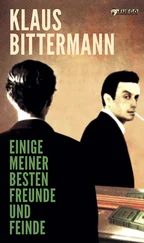They didn’t mean any harm. They didn’t have the sense to see that something must be wrong. But Marietta never could stand men laughing. There were always places she hated to go past, let alone into, and that was the reason. Men laughing. Because of that, she hated barbershops, hated their smell. (When she started going to dances later on with my father, she asked him not to put any dressing on his hair, because the smell reminded her.) A bunch of men standing out on the street, outside a hotel, seemed to Marietta like a clot of poison. You tried not to hear what they were saying, but you could be sure it was vile. If they didn’t say anything, they laughed and vileness spread out from them — poison — just the same. It was only after Marietta was saved that she could walk right past them. Armed by God, she walked through their midst and nothing stuck to her, nothing scorched her; she was safe as Daniel.
Now she turned and ran, straight back the way she had come. Up the hill, running to get home. She thought she had made a mistake leaving her mother. Why did her mother tell her to go? Why did she want her father? Quite possibly so that she could greet him with the sight of her own warm body swinging on the end of a rope. Marietta should have stayed — she should have stayed and talked her mother out of it. She should have run to Mrs. Sutcliffe, or any neighbor, not wasted time this way. She hadn’t thought who could help, who could even believe what she was talking about. She had the idea that all families except her own lived in peace, that threats and miseries didn’t exist in other people’s houses, and couldn’t be explained there.
A train was coming into town. Marietta had to wait. Passengers looked out at her from its windows. She broke out wailing in the faces of those strangers. When the train passed, she continued up the hill — a spectacle, with her hair uncombed, her feet bare and muddy, in her nightgown, with a wild, wet face. By the time she ran into her own yard, in sight of the barn, she was howling. “Mama!” she was howling. “Mama!”
Nobody was there. The chair was standing just where it had been before. The rope was dangling over the back of it. Marietta was sure that her mother had gone ahead and done it. Her mother was already dead — she had been cut down and taken away.
But warm, fat hands settled down on her shoulders, and Mrs. Sutcliffe said, “Marietta. Stop the noise. Marietta. Child. Stop the crying. Come inside. She is well, Marietta. Come inside and you will see.”
Mrs. Sutcliffe’s foreign voice said, “Mari-et-cha,” giving the name a rich, important sound. She was as kind as could be. When Marietta lived with the Sutcliffes later, she was treated as the daughter of the household, and it was a household just as peaceful and comfortable as she had imagined other households to be. But she never felt like a daughter there.
In Mrs. Sutcliffe’s kitchen, Beryl sat on the floor eating a raisin cookie and playing with the black-and-white cat, whose name was Dickie. Marietta’s mother sat at the table, with a cup of coffee in front of her.
“She was silly,” Mrs. Sutcliffe said. Did she mean Marietta’s mother or Marietta herself? She didn’t have many English words to describe things.
Marietta’s mother laughed, and Marietta blacked out. She fainted, after running all that way uphill, howling, in the warm, damp morning. Next thing she knew, she was taking black, sweet coffee from a spoon held by Mrs. Sutcliffe. Beryl picked Dickie up by the front legs and offered him as a cheering present. Marietta’s mother was still sitting at the table.
HER HEART WAS broken. That was what I always heard my mother say. That was the end of it. Those words lifted up the story and sealed it shut. I never asked, Who broke it? I never asked. What was the men’s poison talk? What was the meaning of the word vile?
Marietta’s mother laughed after not hanging herself. She sat at Mrs. Sutcliffe’s kitchen table long ago and laughed. Her heart was broken.
I always had a feeling, with my mother’s talk and stories, of something swelling out behind. Like a cloud you couldn’t see through, or get to the end of. There was a cloud, a poison, that had touched my mother’s life. And when I grieved my mother, I became part of it. Then I would beat my head against my mother’s stomach and breasts, against her tall, firm front, demanding to be forgiven. My mother would tell me to ask God. But it wasn’t God, it was my mother I had to get straight with. It seemed as if she knew something about me that was worse, far worse, than ordinary lies and tricks and meanness; it was a really sickening shame. I beat against my mother’s front to make her forget that.
My brothers weren’t bothered by any of this. I don’t think so. They seemed to me like cheerful savages, running around free, not having to learn much. And when I just had the two boys myself, no daughters, I felt as if something could stop now — the stories, and griefs, the old puzzles you can’t resist or solve.
AUNT BERYL said not to call her Aunt. “I’m not used to being anybody’s aunt, honey. I’m not even anybody’s momma. I’m just me. Call me Beryl.”
Beryl had started out as a stenographer, and now she had her own typing and bookkeeping business, which employed many girls. She had arrived with a man friend, whose name was Mr. Florence. Her letter had said that she would be getting a ride with a friend, but she hadn’t said whether the friend would be staying or going on. She hadn’t even said if it was a man or a woman.
Mr. Florence was staying. He was a tall, thin man with a long, tanned face, very light-colored eyes, and a way of twitching the corner of his mouth that might have been a smile.
He was the one who got to sleep in the room that my mother and I had papered, because he was the stranger, and a man. Beryl had to sleep with me. At first we thought that Mr. Florence was quite rude, because he wasn’t used to our way of talking and we weren’t used to his. The first morning, my father said to Mr. Florence, “Well, I hope you got some kind of a sleep on that old bed in there.” (The spare-room bed was heavenly, with a feather tick.) This was Mr. Florence’s cue to say that he had never slept better.
Mr. Florence twitched. He said, “I slept on worse.”
His favorite place to be was in his car. His car was a royal-blue Chrysler, from the first batch turned out after the war. Inside it, the upholstery and floor covering and roof and door padding were all pearl gray. Mr. Florence kept the names of those colors in mind and corrected you if you said just “blue” or “gray.”
“Mouse skin is what it looks like to me,” said Beryl rambunctiously “I tell him it’s just mouse skin!”
The car was parked at the side of the house, under the locust trees. Mr. Florence sat inside with the windows rolled up, smoking, in the rich new-car smell.
“I’m afraid we’re not doing much to entertain your friend,” my mother said.
“I wouldn’t worry about him,” said Beryl. She always spoke about Mr. Florence as if there was a joke about him that only she appreciated. I wondered long afterward if he had a bottle in the glove compartment and took a nip from time to time to keep his spirits up. He kept his hat on.
Beryl herself was being entertained enough for two. Instead of staying in the house and talking to my mother, as a lady visitor usually did, she demanded to be shown everything there was to see on a farm. She said that I was to take her around and explain things, and see that she didn’t fall into any manure piles.
I didn’t know what to show. I took Beryl to the icehouse, where chunks of ice the size of dresser drawers, or bigger, lay buried in saw dust. Every few days, my father would chop off a piece of ice and carry it to the kitchen, where it melted in a tin-lined box and cooled the milk and butter.
Читать дальше












